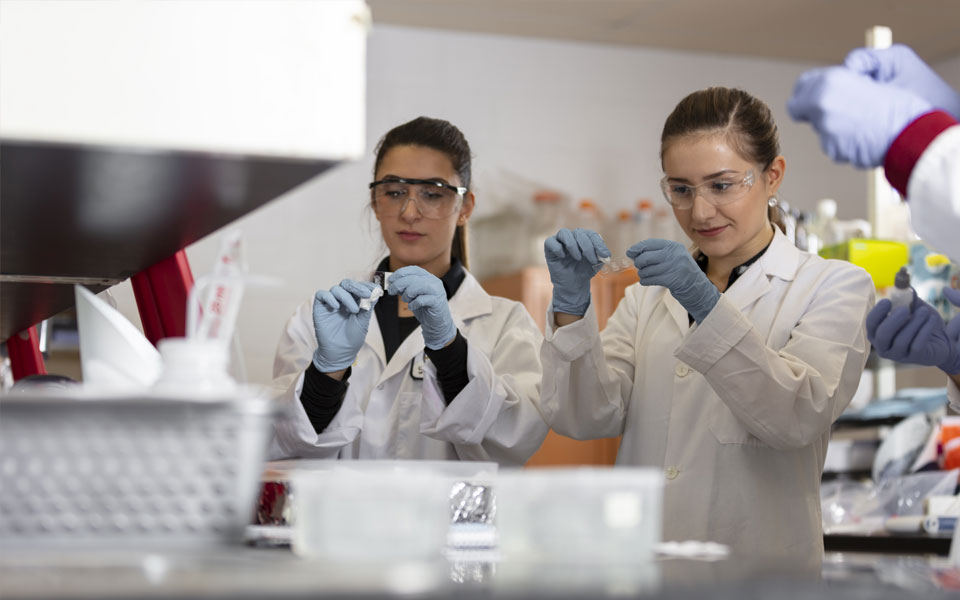
Program Overview & Highlights
- Honours 4-Year Program
- Thesis Available
Calling all future health professionals! This program gives you a strong background in both biochemistry and biomedical sciences, fundamental to health and medicine. You’ll be in a lab within the first two weeks of this program and get the chance to conduct undergraduate research with hands-on learning in courses like CURE. You’ll get a chance to work alongside clinical researchers and medical professionals to learn about funding, project management, communication and other issues of cancer and health research.
Learn More About Our Program
Admission Requirements
High School Student from Canada
Course Requirements: Advanced Functions/MHF4U, Chemistry/SCH4U, Biology/SBI4U. English/ENG4U
Strongly Recommended: Calculus & Vectors/MCN4U
Recommended: Physics/SPH4U
Minimum Average: 75% average of all attempted science and math courses required
Mean Average: 88%
High School Student from Outside Canada and the United States (International)
Course Requirements: Grade 12 Advanced Functions, Grade 12 Chemistry, Grade 12 Biology. Grade 12 English.
Recommended: Grade 12 Physics
Minimum Average: 75% average of all attempted science and math courses required
Mean Average: 88%
Language Requirements
To review the most up-to-date information on Undergraduate Language Requirements: See undergraduate language requirements.
Academic Calendars
Career Tracks
- Professional school (medicine, pharmacy, dentistry)
- Industrial and government research and development
- Health and biomedical research in graduate studies
- Clinical researcher